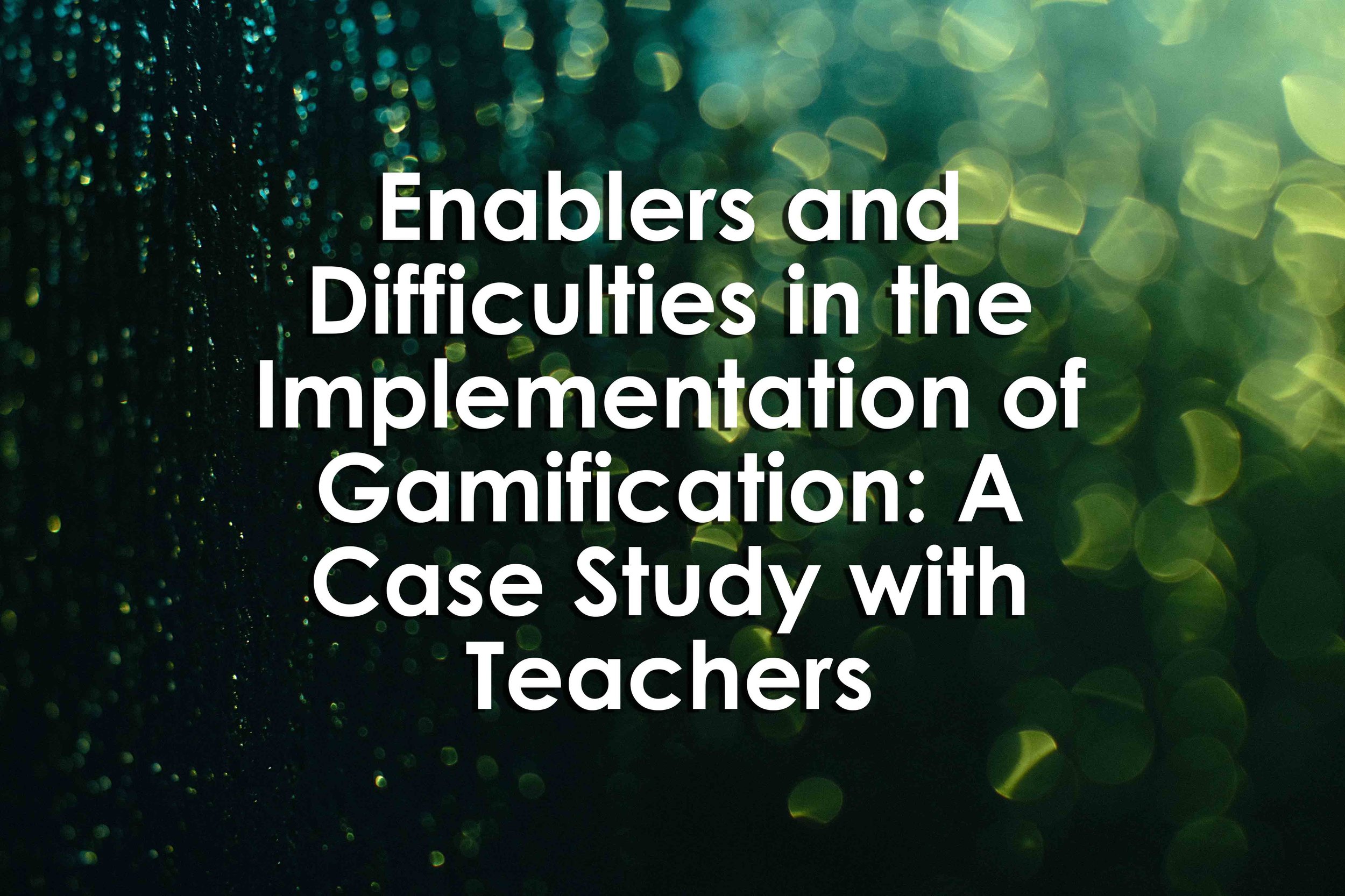Enablers and Difficulties in the Implementation of Gamification: A Case Study with Teachers
Enablers and Difficulties in the Implementation of Gamification: A Case Study with Teachers
Enablers and Difficulties in the Implementation of Gamification: A Case Study with Teachers
By Inês Araújo and Ana Amélia Carvalho
Abstract
“Although there is ample evidence that gamification can engage students in learning, it is less used than one would expect. This raises the question of the difficulties teachers face in planning and implementing gamification in their classes. What enables teachers’ implementation of gamification? These questions were addressed through a case study, and data were collected along the four phases of a teachers’ training course. The first phase approached the gamification concept, the Octalysis Framework, the types of gamification, and digital tools. The second phase focused on planning the gamification activity, the third one on implementing it with their students in school, and the fourth phase on sharing and reflecting on their experience. It was possible to identify enablers and difficulties that influenced the planning, such as personal background, time available, and technical conditions in the classroom. Most teachers opted for a platform with digital tools that allowed them to apply all the desired features to their gamified activities. The most complex gamified activities were related to the teacher’s gaming experience, use of digital tools, and risk-taking.”
Reference
Araújo, I., &; Carvalho, A. A. (2022). Enablers and difficulties in the implementation of gamification: A case study with teachers. MDPI. Retrieved April 26, 2022, from https://doi.org/10.3390/educsci12030191
Keyword
Gamification, octalysis framework, education, teacher training, research

